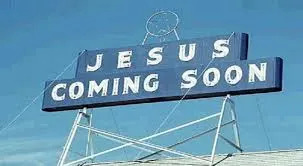It’s Advent. What are you waiting for? Better said, why do we wait?
We wait to remember.
The word “advent” comes from the Latin adventus meaning “coming, arrival or visit.” The Greek word is parousia and is most often associated with Jesus’ promised second coming. As Christians we know and celebrate that which has come. We also live in the moment-by-moment knowledge that Christ is present by the power of the Holy Spirit right now, within us, within the Church, and active in the world. And yet we await Christ’s coming. This is the reality of the “season” of Advent observed in many Christian churches in the weeks leading up to Christmas. It is a time for Christians to intentionally focus their attention on the “coming” of Jesus as Messiah, Christ and King. This is not only a remembrance of His first advent, but also joyful anticipation of Christ’s second advent yet to come.
Lest we breed confusion, it is important to remind ourselves that although Jesus came from heaven to earth at a specific point in human history in the form of a man, and that one day He will return again to earth as Judge and King, Jesus does not cease to be in the interim. Nor did He spring from non-existence when He was conceived by the power of the Holy Spirit in the womb of Mary. Jesus has always been; Jesus was; Jesus is; and Jesus always will be. And yet He comes.
He is the second co-eternal member of the Trinune Godhead. He is the Son of God, sent to be the Savior, raised to be Lord, waiting even now to come again as Judge and King.
From Adam to Joseph the world lay in waiting for His arrival.

From His first advent until His promised second coming the world waits again. As we look forward to His appearing, let us look back to gain God’s perspective on His own advent.
Read Matthew 1:1-17 and take note of the women in Jesus’ genealogy. You may remember a few things about Tamar, Rahab, Ruth, Bathsheba and Mary, but take the time to re-read their stories with this reality in mind: These women are essential to God’s unfolding plan of redemptive history.
Read Luke 3:23-38. What are the differences between the genealogies of Jesus as recorded by Matthew and Luke? Matthew starts with Abraham and works his way forward down the family tree to Jesus. Luke starts with Jesus and works his way back through David to Abraham to Adam to God. Think about the scope of the stories contained in that family tree and the root that they supply for the shoot which springs up in the person of Christ. Some of the names leap off the page because we know their stories so well: Adam, Noah, Abraham, Isaac, Jacob, Judah, Boaz, David, Joseph. Others in the list are so obscure that we know little about them – other than the fact that in God’s plan they each provide an essential link in the chain that leads to Jesus. With Jesus’ genealogy in mind, read John 1:1-18, Colossians 1:15-20, Hebrews 1:1-4. Whose son is He?
Consider the reality that Jesus is the son of man and Jesus is the son of God. How do these Scripture texts help you better understand His dual nature? Jesus is the Word of God enfleshed. He is the Word incarnate. How do these texts help you understand His eternal nature as the Word of God? How do the texts from Colossians and Hebrews help you understand Jesus’ pre-existent nature and how does Revelation 22:7-21 help you understand the reality that He is yet to come?
- We wait to live in His presence in new ways. Matthew 28:20b.
- We wait to submit with Mary. Luke 1:26-38.
- We wait to dream with Joseph. Matthew 1:18-25; 2:13-15; 2:19-23.
- We wait to leap with John. Luke 1:38-45.
- We wait to sing with the angels. Luke 2:8-14.
- We wait to wonder with the shepherds. Luke 2:8, 15-20.
- We wait to worship with the wise men. Matthew 2:1-12.
- We wait to see promises fulfilled with Simeon. Luke 2:21-35.
- We wait to see prayers answered with Anna. Luke 2:36-38.
- We wait to marvel with Mary. Luke 2:19, 2:33.
- We wait to see Him with the disciples Acts 1:7-11.
- We wait to be with Him, forever. Revelation 22.
We wait between the already and the not yet of the Kingdom of Christ.
As Christians, we live in the world as resident aliens with knowledge of realities that many of our neighbors are completely unaware. Our primary and most significant relationship is with a God whom many people around us do not believe exists. We are an odd lot and yet we are a chosen people, a royal priesthood, citizens of the Kingdom of Heaven. This Kingdom has a King, and it is His advent to which we attend. The King has come and in His first advent – through Christ’s life, ministry, death and resurrection – the Kingdom was inaugurated. This we celebrate. And yet, God’s Kingdom will not be consummated until His second advent. And for this we wait with great expectation.
Read John 3:1-21.
As a person in whom Christ reigns as Lord by the power of the Holy Spirit and as a person who has the privilege of living with the knowledge of Jesus’ death and resurrection, how would you walk through Jesus’ discourse with Nicodemus to help a questioning neighbor today understand the teachings of Jesus in this passage? In verse 3, what does Jesus say is the criteria for entrance into the Kingdom of God? In verses 5-8, how does Jesus say that entry is accomplished? (This is a good opportunity to remind ourselves of Ephesians 2:4-8; it is by grace that this redemption is accomplished.)
Will everyone accept this Truth? (vs. 11, 19)
Verses 20-21 cut each of us to the heart if we are honest. All have sinned and fallen short of the glory of God and none of us wants to be publicly exposed. We like to tuck things into the shadows and the thought of anyone, including God, seeing plainly what we have thought, said and done is shameful. And yet, He sees. He is sovereign. He reigns. The only question is whether we live our lives “in” or “out” of His Kingdom. God is still calling people into His Kingdom, and He’s sending that message of invitation through you and me. Read II Timothy 4:1-5. Verse 1 reminds us that we live now in the presence of God and of Christ Jesus. Consider that truth for a moment.
Right now, wherever else you are in the world, you are also in the presence of the enthroned Christ, King of kings and Lord of lords. Only those who know the real presence of Christ are in a position to invite others. This is the work of evangelism, and it is work that belongs to us all. II Timothy 4:18 reminds us that although we already reside in Christ’s presence we are not yet “safely” in His Kingdom.
This is the already and not yet nature of life lived between advents. We are ambassadors of Christ’s Kingdom. Like those who are sent out to find, instruct, counsel and walk with Little Christian and Christiana in John Bunyan’s Little Pilgrim’s Progress, we know the One who reigns in the Celestial City and we want nothing more in this life than for them to find the Way. II Peter 1:11 captures that moment of arrival, “You will receive a rich welcome into the eternal Kingdom of our Lord and Savior Jesus Christ.”
Read Hebrews 12:22-29. Do you see both the reality of the Kingdom to which we are going and the Kingdom He is yet coming to consummate?
This Kingdom that invites and promises and energizes our present struggle is also the inheritance that lies before us. Read and revel in I Corinthians 6:9-10; 15:50, Galatians 5:21, Ephesians 5:5, James 2:5.
The Kingdom of God is already and not yet. Inaugurated in Christ’s first advent and yet to be consummated in His second.
We wait for His advent, again.

We say in the Apostle’s Creed and throughout the confessions that we believe Jesus “is coming again to judge the living and the dead.” We say it, but do we genuinely believe it? Do we genuinely anticipate and await Christ’s second advent? Hebrews 9:28 says, “So Christ, having been offered once to bear the sins of many, will appear a second time, not to deal with sin but to save those who are eagerly waiting for Him.” How eagerly then, are you waiting?
Read Matthew 24-25. Here Jesus tells us what He knows about His own second advent. 24:36: What is known by Christ about the day and the hour of His second coming? How then should you respond when others claim to know what Christ Himself is beyond knowing? 24:42-44: What does Jesus say about our expectation and behavior related to His coming advent? 25:1-13: What does Jesus’ teaching in the passage indicate to you about the claim of some people that “everyone” will be saved? What distinction does Jesus make between the people in this passage? 25:14-30: Consider your life. Over what has God placed you as a steward of that which ultimately belongs to Him? What rate of return on investment is God getting from the life He has given you? What rate of return on investment is God getting from the education, experiences, privileges, opportunities, relationships, and time He has given you? If God asked today for an accounting of the talents with which He has blessed you, what would that accounting look like? 25:31-46: Again, what does Jesus indicate here in terms of the distinction God makes between those who will inhabit the Kingdom of Heaven and those who will not? What does that tell you about those who espouse and teach religious pluralism or a theology of universal salvation? What does v. 41 tell you about those who deny the reality of hell?
This passage is often used to argue for a theology of works righteousness. If you are tempted to believe that, read it again. Is Jesus not making a distinction between the life of a genuine disciple whose righteousness in Christ is lived out through a demonstration of grace and truth in the world? Is it the “works” that matter or is it the personal, divine perspective that those who are in Christ have toward other people? The distinction that Jesus makes is between the righteous (v. 37 and 46) and those who are judged to be unrighteous. Righteousness comes not by works, but by Christ, alone (Romans 4:3-6 and Romans 3:22-23).


